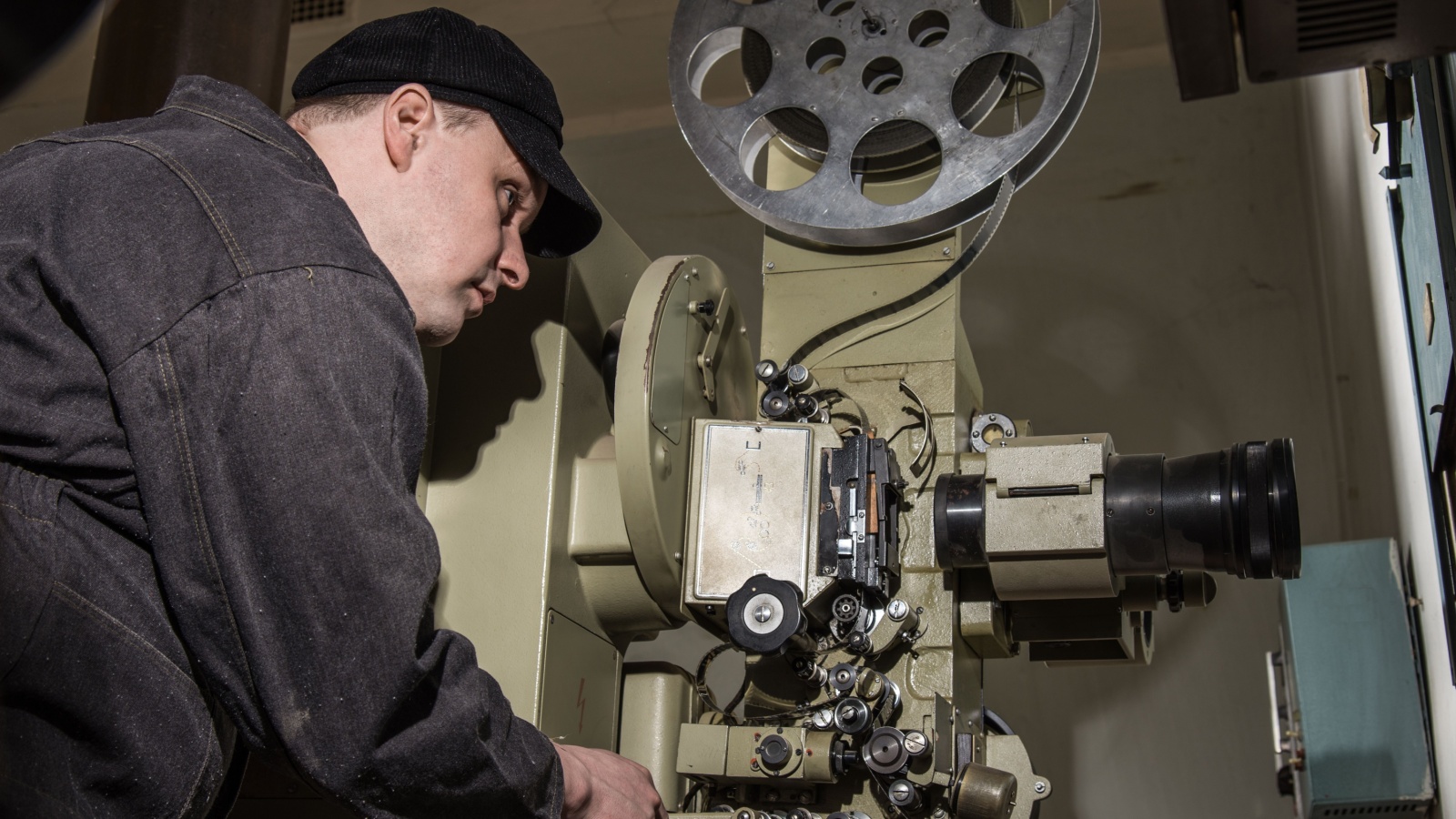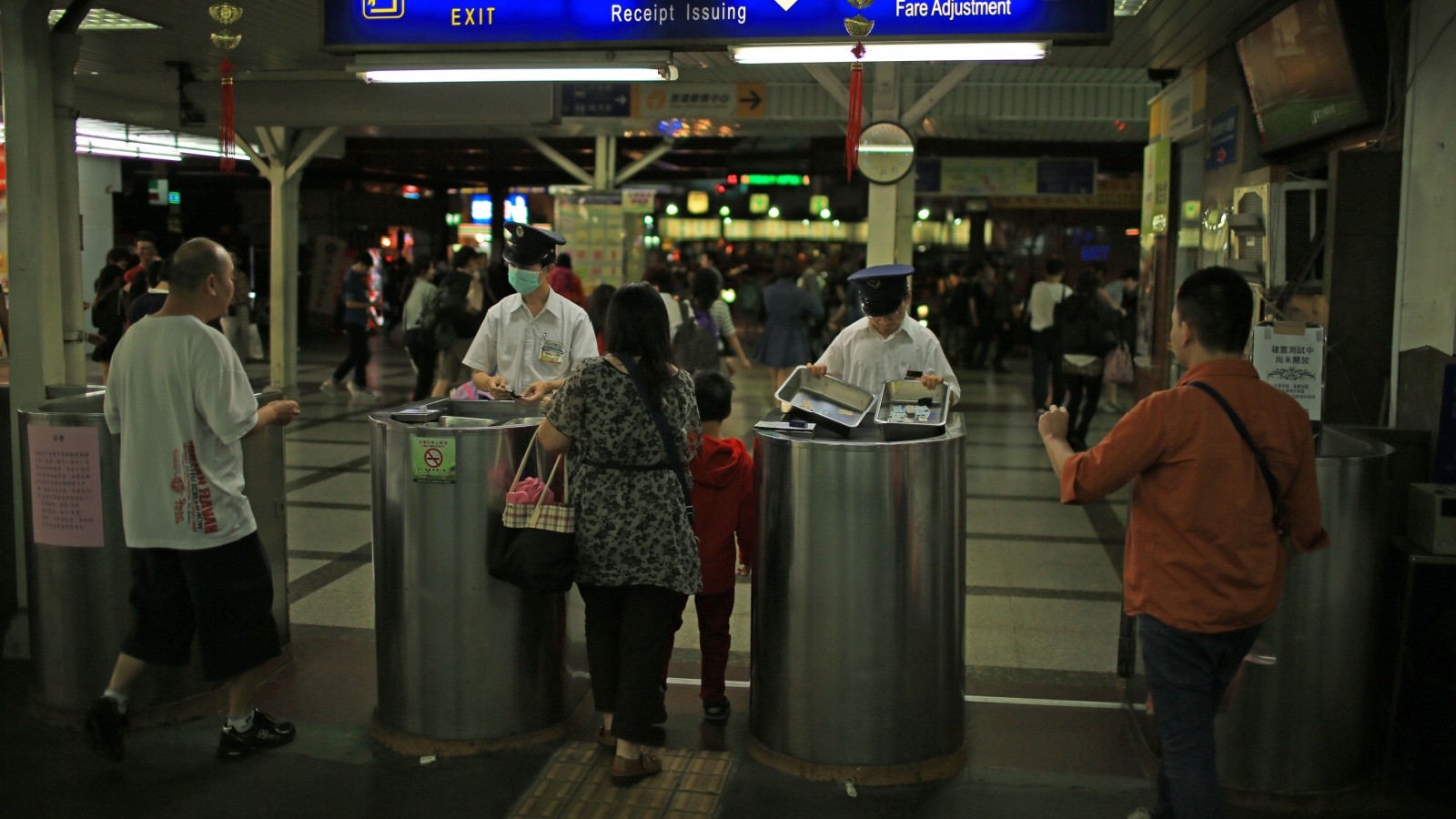Canada’s workforce has changed dramatically over the last ten years. Some jobs that once offered steady pay and stability have either faded away or shrunk to near extinction. Automation, digital technology, shifting consumer habits, and global competition have all played their part in pushing certain careers to the sidelines. For many Canadians, this change was gradual and barely noticeable until the job was simply gone. Here are 20 Canadian jobs that quietly disappeared in the past decade:
Video Store Clerk

Not long ago, Friday nights meant renting movies from local shops. Video store clerks kept shelves stocked and recommended favorites, but streaming services like Netflix and Disney+ ended the need for physical rentals. Chains like Blockbuster and Rogers Video closed their doors, and with them went thousands of jobs. While some independent shops held on a bit longer, the decline was inevitable. Today, the role of video store clerk lives only in nostalgia, a reminder of how quickly technology can turn an everyday job into a relic.
Newspaper Typesetter

Newspaper typesetters were once crucial to Canadian journalism, arranging print layouts by hand and later through specialized machines. With the digital transition, automated software took over nearly all of this work, making the role obsolete. As print circulation declined and newsrooms downsized, typesetting became one of the first casualties. Today, entire newspapers are designed digitally, often by fewer staff members who handle multiple tasks at once. For many, it’s a bittersweet shift that highlights both the efficiency of modern tools and the disappearance of specialized trades in media.
Bank Teller (Full-Time)

While bank branches still exist, the number of full-time bank teller positions has steadily dropped. Canadians increasingly rely on ATMs, mobile apps, and online banking for everyday transactions, reducing the need for staff behind the counter. Those who remain often work part-time or handle advisory roles rather than routine deposits and withdrawals. The decline of the traditional teller reflects a broader trend toward digital convenience. For customers, it’s faster service, but for workers, it’s fewer stable positions in what was once considered a safe, long-term career.
Photo Lab Technician

Photo lab technicians used to be busy developing rolls and printing stacks of photos. But smartphones, digital cameras, and home printers made the job nearly vanish. While some labs still exist for professional photographers or nostalgic customers, the demand is a fraction of what it once was. Big retailers like Walmart and Shoppers Drug Mart downsized their photo centers, eliminating thousands of positions across Canada, demonstrating a classic case of convenience technology replacing a hands-on trade in just a few years.
Travel Agent

The travel agent’s desk was once the first stop for Canadians planning a vacation. But with online booking sites like Expedia and direct airline portals, many travelers now organize their own trips. While a few agents still specialize in luxury travel or complex itineraries, the average walk-in travel agency has disappeared from many cities. This shift left countless agents without work and changed how Canadians approach travel planning. It’s a job that faded not because of lack of travel demand, but because technology made the process so personal.
Toll Booth Operator

In many Canadian cities, toll booths have given way to electronic systems like transponders and automatic billing. Highway 407 in Ontario, for instance, relies entirely on electronic tolling, eliminating the need for operators. This shift reduces congestion and speeds up traffic flow, but comes at the cost of stable, blue-collar jobs. Toll booth operators once provided assistance, handled cash, and even offered directions to drivers. Now, the job exists only in memory, replaced by cameras and digital billing systems that never take a break or ask for overtime.
Switchboard Operator

Switchboard operators once connected calls in hospitals, offices, and government buildings, making sure people got the right line. With the rise of automated phone systems and digital communication tools, the role has nearly vanished. Hospitals that once staffed dozens of operators now rely on computerized systems that handle call routing. While this improved efficiency, it ended a job that required patience, precision, and people skills. For many older Canadians, the disappearance of switchboard operators marks the end of an era where a human voice was always the first connection.
Retail Cashier (Full-Time)

Self-checkout lanes have become a common sight in Canadian grocery stores and big-box retailers, quietly reducing the number of full-time cashier roles. While some staff remain to help troubleshoot, the shift has led to fewer stable hours and increased part-time positions. For shoppers, it often means faster service, but for workers, it represents a major shift in retail employment, as large chains like Walmart and Loblaws have leaned heavily into this trend. The traditional cashier role hasn’t disappeared entirely, but the number of positions has shrunk dramatically in the last decade.
Milkman

Once a morning staple in Canadian neighborhoods, milkmen delivered fresh bottles right to your doorstep. The convenience faded with the rise of supermarkets and refrigerators, which allowed families to stock up on dairy products. While some niche delivery services have revived the idea on a small scale, the traditional milkman job is gone. For decades, it represented steady work and a vital link between farmers and households, but today, it’s remembered as part of a bygone era, another example of how modern retail changed everyday jobs forever.
Film Projectionist

The magic of the movies once relied on skilled projectionists threading film reels and managing projectors. With the move to digital projection, these specialized roles became almost unnecessary. Modern theaters run on automated systems that can operate with minimal staff intervention, and while some independent cinemas keep the tradition alive, the vast majority of projectionist jobs have disappeared. It’s a loss not just of employment but of a craft that required precision and pride. For many, the shift to digital brought sharper images but dimmed the behind-the-scenes artistry.
DVD Rental Delivery Driver

Before streaming took over, DVD rental services and local video stores often employed drivers to deliver movies straight to customers’ doors. In smaller Canadian towns, this was a convenient add-on for those who couldn’t make it to the shop. Still, with Netflix, Crave, and other platforms eliminating the need for physical discs, the role of DVD rental delivery driver has vanished completely. It’s a reminder of how quickly home entertainment has evolved from waiting days for a rental to instantly pressing play on a tablet or TV.
Payphone Technician

Canadian cities used to be dotted with payphones, and technicians were constantly in demand to maintain them. As cellphones became ubiquitous, the need for repairs, installations, and upkeep declined sharply. In many provinces, entire banks of payphones were removed, leaving technicians without work. Bell and Telus once employed teams for this task, but today the role is virtually extinct. While a few payphones still linger in rural areas, the steady paycheck of the payphone technician has disappeared, replaced by mobile towers and smartphone repair shops.
Railway Ticket Agent

At one time, buying a train ticket in Canada meant speaking with a ticket agent at the station. VIA Rail and regional train lines employed thousands of these workers across the country. But with online booking and automated kiosks, the number of ticket agents has dwindled significantly. Passengers now print tickets at home or scan digital codes, leaving little need for staffed counters. While some agents remain in larger hubs, the small-town railway ticket agent is nearly gone, taking with it a job tied closely to Canada’s travel history.
Classifieds Salesperson

Newspapers once depended heavily on classified ads, and salespeople made a living connecting buyers with sellers. With the rise of online platforms like Kijiji, Craigslist, and Facebook Marketplace, the classified section shrank to almost nothing. This shift not only hurt newspapers but also eliminated jobs for the people who sold and managed those ads. For decades, classifieds salespeople were essential in every Canadian city, and now, they’re part of a media industry that has been reshaped by digital convenience and the death of print as the go-to marketplace.
Parking Lot Attendant (Cash-Based)

Downtown Canadian cities once relied on parking lot attendants to take cash, issue tickets, and keep an eye on lots. With automated pay stations, tap cards, and mobile apps, the role has nearly disappeared, and today, most lots operate without any human staff on site. While it reduces costs for companies, it also cuts out a source of work that once employed thousands. Some attendants transitioned into security roles, but the traditional job of standing in a booth and collecting payment is now largely obsolete.
Typist/Word Processor

Before computers became common in every office, typists and word processors were hired to prepare documents for businesses, lawyers, and government departments. These roles required speed, accuracy, and training, and they provided steady employment for decades. As personal computers and word processing software became standard, the need for specialized typists evaporated, and today, everyone from managers to students types their own work. While some administrative assistant roles include typing, the full-time position dedicated exclusively to word processing has vanished from Canadian workplaces almost entirely.
Meter Reader

Utility companies used to employ legions of meter readers to walk neighborhoods, recording electricity, gas, and water usage. With the introduction of smart meters, the job has nearly disappeared across Canada. These devices transmit data automatically, eliminating the need for in-person readings. While this has made billing more efficient, it has also eliminated stable jobs that required little more than reliability and accuracy. For many workers, meter reading was a dependable career, but today, the role serves as another example of automation reshaping everyday services.
Newspaper Delivery Carrier (Adult Routes)

Adult newspaper carriers once had early morning routes, dropping off papers to homes and businesses before sunrise. The sharp decline of print subscriptions has all but erased this job. While a few routes still exist, especially in rural areas, the vast majority have been cut. For decades, it was a steady part-time gig that helped supplement income for families, but now, Canadians turn to digital subscriptions, leaving carriers without work. It’s a quiet disappearance that highlights the slow fade of newspapers in a digital-first world.
Radio DJ (Local Stations)

Local radio once thrived on DJs who brought personality, music picks, and community news to Canadian airwaves. But with music streaming, satellite radio, and automated playlists, many smaller stations have cut back on live DJs. Larger networks often syndicate shows across multiple markets, leaving little room for local voices. While some remain in big cities, the job has nearly disappeared in small and mid-sized towns. For listeners, it means less hometown flavor on the dial, and for workers, another creative career lost to technology and consolidation.
Film Developer (Independent Shops)

Independent film developers were once found in nearly every neighborhood, processing rolls of film within days. With digital cameras and smartphones, the demand for developing has collapsed. A few specialty shops and professional labs remain, but the corner photo store is no longer there. For many Canadians, this job’s disappearance marks the end of a ritual that involves dropping off film and flipping through glossy prints. While photography remains alive, the role of the film developer has all but disappeared, a casualty of the rapid rise of instant digital sharing.
21 Products Canadians Should Stockpile Before Tariffs Hit

If trade tensions escalate between Canada and the U.S., everyday essentials can suddenly disappear or skyrocket in price. Products like pantry basics and tech must-haves that depend on are deeply tied to cross-border supply chains and are likely to face various kinds of disruptions
21 Products Canadians Should Stockpile Before Tariffs Hit
